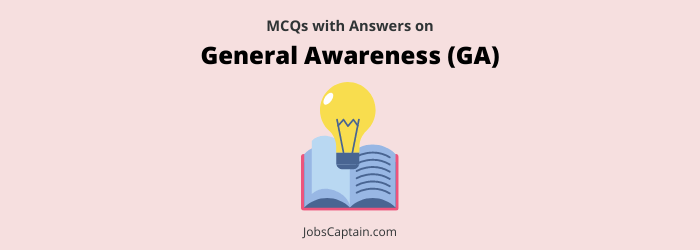
Question 1. Who among the following was the author of the official history of Congress?
(A) Sardar Patel
(B) Pattabhi Sitaramayya
(C) J.B. Kriplani
(D) C. Rajagopalachari
Question 2. During the colonial period in India, what was the purpose of the Whitley Commission?
(A) To develop a comprehensive scheme for Civil Services in India
(B) To draw up a plan for financial reforms for India
(C) To review the fitness of India for further political reforms
(D) To review the fitness of India for further political reforms
Question 3. What was the common relationship between Katherine Mayo, Aldous Huxley, Charles Andrews, and William Digby?
(A) They were friends of Mahatma Gandhi
(B) They were opponents of the Indian National Movement
(C) They were supporters of the Indian National Movement
(D) They wrote commentaries on the condition of India during the British rule
Question 4. The year of the Bengal Famine in which millions of people died is___________.
(A) 1945
(B) 1944
(C) 1943
(D) 1942
Question 5. To establish global peace and cooperation among the peoples, which of the following concept introduced by the Jawaharlal Nehru?
(A) Non-alignment
(B) Peaceful coexistence
(C) Panchsheel
(D) None of the above
Question 6. Which part of India remained under Portuguese control after 15th August 1947?
(A) Andaman & Nicobar
(B) Pondicherry
(C) Sikkim
(D) Goa
Question 7. Against which colonial power freedom struggle had to be continued in India even after 15th August 1947?
(A) Portuguese
(B) British
(C) Dutch
(D) French
Question 8. Which of the following statements is not true for Jawaharlal Nehru?
(A) He was influenced by German Nationalism
(B) He was influenced by Mahatma Gandhi
(C) He was influenced by British liberalism
(D) He was influenced by Socialism
Question 9. Which one of the following was not a dominant caste in Bihar during the pre-independent period?
(A) Kurmi
(B) Kayasthas
(C) Rajputs
(D) Bhumihar
Question 10. The first Indian to contest election to the British House of Commons was__________.
(A) W.C. Bannerjee
(B) Feroz Shah Mehta
(C) Gopal Krishna Gokhale
(D) Dada Bhai Naoroji
Question 11. Who was the first Indian selected as a member of the British Parliament?
(A) Meghnad Desai
(B) Rammohan Roy
(C) Dadabhai Naoroji
(D) R.C. Dutt
Question 12. The practice of indirect election in India was launched in which of the following year?
(A) 1919
(B) 1909
(C) 1892
(D) 1861
Question 13. Name the Deoband scholar who played a significant role in the freedom movement.
(A) Chirag Ali
(B) Badruddin Tyabji
(C) Mohammad Ali Jinnah
(D) Abul Kalam Azad
Question 14. The first Industrial Policy of independent India was announced in the year of____________.
(A) 1951
(B) 1951
(C) 1948
(D) 1947
Question 15. The first communist Government of India was established in the province of_____________.
(A) West Bengal
(B) Kerala
(C) Andhra Pradesh
(D) Tamil Nadu
Question 16. The first Communist State Government in Kerala was formed in…
(A) 1959
(B) 1957
(C) 1955
(D) 1953
Question 17. Which one of the following was favoured by Nehru but not favoured by Gandhi?
(A) Heavy-industrialisation
(B) Untouchability
(C) Non-violence
(D) Truth
Question 18. Which of the following session of the Indian National Congress, Gandhi said, ‘Gandhi may die, but Gandhism will remain forever?
(A) Karachi Session, 1931
(B) Calcutta Session, 1928
(C) Lahore Session, 1929
(D) Ramgarh Session, 1940
Question 19. Write down the following in correct chronological order.
(A) Nehru report, Quit India Movement, Simon Commission, Non-Co-operation movement
(B) Non-Co-operation movement, Nehru report, Quit India Movement, Simon Commission
(C) Non-Co-operation movement, Simon Commission, Nehru report, Quit India Movement
(D) Non-Co-operation movement, Nehru report, Simon Commission, Quit India Movement
Question 20. Specifiy the order of the following.
(A) 1. Surat Split 2. Simon Commission 3. Civil Disobedience Movement 4. Khudai khidmatgar
(B) 1. Khudai khidmatgar 2. Civil Disobedience Movement 3. Surat Split 4. Simon Commission
(C) 1. Simon Commission 2. Civil Disobedience Movement 3. Surat Split 4. Khudai khidmatgar
(D) 1. Simon Commission 2. Civil Disobedience Movement 3. Khudai khidmatgar 4. Surat Split
Question 21. Who organized the ‘Khudai khidmatgar’ in 1929?
(A) Maulana Abul Kalam Azad
(B) Ansari Brothers
(C) Ali Brothers
(D) Abdul Ghaffar Khan
Question 22. Which of the following is not correctly matched?
(A) Radical Democratic Party – Mahatma Gandhi
(B) All India Kisan Sabha – Acharya Narendra Dev
(C) United Indian Patriotic Association – Sir Syed Ahmad Khan
(D) Awadh Kisan Sabha – Jawaharlal Nehru
Question 23. Which one of the following is not correctly matched?
(A) M.A. Jinnah – Khilafat Movement
(B) S.C. Bose – Forward Bloc
(C) M.K. Gandhi – Champaran Movement
(D) Motilal Nehru – Nehru Report
Question 24. The main cause of Italian Renaissance was________.
(A) Secular traditions
(B) Freedom to express ideas
(C) Highly developed Education
(D) Scientific development in Italy
Question 25. ‘Apartheiv’ is__________.
(A) Hindi translation of ‘Unearthly’
(B) a system in South Africa of institutionalized racial segregation
(C) a system related to age set
(D) a system related to gender discrimination
